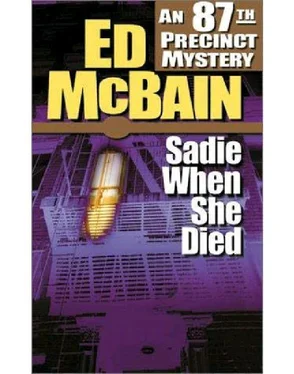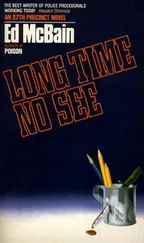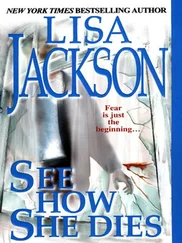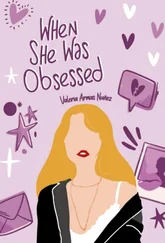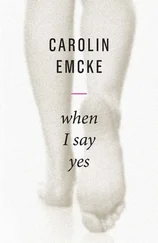Ed McBain - Sadie When She Died
Здесь есть возможность читать онлайн «Ed McBain - Sadie When She Died» весь текст электронной книги совершенно бесплатно (целиком полную версию без сокращений). В некоторых случаях можно слушать аудио, скачать через торрент в формате fb2 и присутствует краткое содержание. Жанр: Полицейский детектив, на английском языке. Описание произведения, (предисловие) а так же отзывы посетителей доступны на портале библиотеки ЛибКат.
- Название:Sadie When She Died
- Автор:
- Жанр:
- Год:неизвестен
- ISBN:нет данных
- Рейтинг книги:4 / 5. Голосов: 1
-
Избранное:Добавить в избранное
- Отзывы:
-
Ваша оценка:
- 80
- 1
- 2
- 3
- 4
- 5
Sadie When She Died: краткое содержание, описание и аннотация
Предлагаем к чтению аннотацию, описание, краткое содержание или предисловие (зависит от того, что написал сам автор книги «Sadie When She Died»). Если вы не нашли необходимую информацию о книге — напишите в комментариях, мы постараемся отыскать её.
Sadie When She Died — читать онлайн бесплатно полную книгу (весь текст) целиком
Ниже представлен текст книги, разбитый по страницам. Система сохранения места последней прочитанной страницы, позволяет с удобством читать онлайн бесплатно книгу «Sadie When She Died», без необходимости каждый раз заново искать на чём Вы остановились. Поставьте закладку, и сможете в любой момент перейти на страницу, на которой закончили чтение.
Интервал:
Закладка:
“In the next two or three minutes. I just want to contact the D.A.’s office to make sure . . .”
“Oh, okay then. Because I want to take a bath.”
“If you don’t hear from me within the next—let’s say, five minutes, okay?—I’ll see you in the morning.”
“Good.”
“Thank you, Miss Simonov.”
“’Bye,” she said, and hung up.
6
C orwin’s attorney, cockroach or otherwise, realized that, if he did not grant the D.A.’s office permission to run a lineup on his client, they would simply get a Supreme Court judge to order such a lineup, so he agreed to it at once. He stipulated only that it be a fair lineup and that he be permitted to attend it. Rollie Chabrier, who was handling the case for the people, readily granted both of his demands.
A fair lineup meant that Corwin and the other men in the lineup should be dressed in approximately the same style of clothing, and should be of the same general build, height, and color. It would not have been considered fair, for example, if the other men in the lineup were all Puerto Rican midgets wearing clown costumes since the witness would then automatically eliminate them and identify the remaining man whether or not he was truly the one she had seen rushing in and out of the basement on the night of the murder. Rollie Chabrier chose men from the D.A.’s detective squad, all of whom were about the same size and general build as Corwin, asked them all to dress casually, and then trotted them into his office together with Corwin himself, who was wearing civilian clothing for the occasion of his visit from Calcutta.
In the presence of Bert Kling, Nora Simonov, and Corwin’s attorney—a cockroach, indeed, whose name was Harvey Johns—Rollie Chabrier said, “Miss Simonov, would you please look at these seven men and tell me if one of them is the man you saw in the basement of 721 Silvermine Oval on the night of December the twelfth, at or about 10:45 P . M .?”
Nora looked, and then said, “Yes.”
“You recognize one of these men?”
“I do.”
“Which one is the man you saw in the basement?”
“That one,” Nora said, and pointed unerringly to Ralph Corwin.
The detectives from the D.A.’s squad handcuffed Corwin once again, and walked him up the corridor to the elevator, which whisked him down ten floors to the basement of the building, where he was led up a ramp to a waiting police van that transported him back to Calcutta. In Chabrier’s office, Harvey Johns thanked him for the fairness of the lineup he had run, and then advised him that his client had told him he no longer desired his services as defense attorney and that probably a new attorney would be appointed to the case, but this did not mean it had not been a pleasure working with Chabrier anyhow. Chabrier thanked Johns, and Johns went back to his office in midtown Isola. Chabrier also thanked Nora for her cooperation, and Kling for his assistance in getting Miss Simonov downtown, and then he shook hands with Kling, and walked them to the elevator, and said good-bye, and scurried off just before the elevator doors closed, a round, pink-cheeked man with a pencil-line mustache, wearing brown shoes with a dark blue suit. Kling figured he had Presidential aspirations.
In the marble entrance lobby of the building, Kling said, “Now that was simple, wasn’t it?”
“Yes,” Nora answered. “And yet, I feel . . . I don’t know. Somewhat like an informer, I guess. I realize the man killed Sarah Fletcher, but at the same time I hate to think my identification will help convict him.” She shrugged, and then smiled suddenly and apologetically. “Anyway, I’m glad it’s over.”
“I’m sorry it was painful,” Kling said. “Can the Department make amends by taking you to lunch?”
“Would it be the Department or would it be you?”
“Me, actually,” Kling said. “What do you say?”
She had, Kling noticed, a direct approach to most matters, asking questions as guilelessly as a child, expecting honest answers in return. Without breaking her stride now, she turned her head toward him, long brown hair falling free over one eye, and said, “If it’s just lunch, fine.”
“That’s all,” Kling said, and he smiled, but he could not hide his disappointment. He realized, of course, that he was still smarting from Cindy Forrest’s abrupt termination of their relationship, and a nice way for a man to prove he was still attractive to women was to sweep someone like Nora Simonov off her feet and into his arms before Cindy could even raise her eyebrows in astonishment. But Nora Simonov wasn’t having any, thanks. “If it’s just lunch, fine,” she had said, making it clear that she wasn’t looking for any more meaningful relationship. She had caught the tone of Kling’s reply, however, he knew that; her face was a direct barometer of her emotions, pressure-sensitive to every nuance of feeling within. She nibbled at her lip now, and said, “I’m sorry, I didn’t mean to make it sound so . . . terminal. It’s just that I am in love with someone, you see, and I didn’t want to give the impression that I might be, well, available, or interested, or . . . my God, I’m only screwing it up worse!”
“No, you’re doing fine,” Kling said.
“I normally detest people who wear their hearts on their sleeves. God, are they boring! Anyway, do we have to have lunch, I’m not even hungry yet. What time is it?”
“A little after twelve.”
“Couldn’t we walk a little and just talk? If we did, I wouldn’t feel I was compromising my grand amour ,” she said, rolling her eyes, “and you wouldn’t feel you were wasting lunch on a completely unresponsive dud.”
“I would love to walk and talk a little,” Kling said.
They walked.
The city that Thursday nine days before Christmas was overcast with menacing clouds; the weather bureau had promised a heavy snowfall before midafternoon. Moreover, a sharp wind was blowing in off the river, swirling in cruel eddies through the narrow streets of the financial district that bordered the municipal and federal courts. Nora walked with her head ducked against the wind, her fine brown hair whipping about her head with each fierce gust. As a defense against the wind, which truly seemed determined to blow her off the sidewalk, she took Kling’s arm as they walked, and on more than one occasion turned her face into his shoulder whenever the blasts became too violent. Kling began wishing she hadn’t already warned him off. As she chattered on about the weather and about how much she liked the look of the city just before Christmas, he entertained wild fantasies of male superiority: bold, handsome, witty, intelligent, sensitive cop pierces armor of young, desirable girl, stealing her away from ineffectual idiot she adores . . .
“The people, too,” Nora said. “Something happens to them just before Christmas, they get, I don’t know, grander in spirit.”
Young girl, in turn, realizing she has been waiting all these years for handsome witty, etc., cop lavishes adoration she had previously wasted on mealy-mouthed moron . . .
“Even though I recognize it’s been brutalized and commercialized, it reaches me, it really does. And that’s surprising because I’m Jewish, you know. We never celebrated Christmas when I was a little girl.”
“How old are you?” Kling asked.
“Twenty-four. Are you Jewish?”
“No.”
“Kling,” Nora said, and shrugged. “It could be Jewish.”
“Is your boyfriend Jewish?”
“No, he’s not.”
“Are you engaged?”
“Not exactly. But we do plan to get married.”
“What does he do?”
“I’d rather not talk about him, if you don’t mind,” Nora said.
Читать дальшеИнтервал:
Закладка:
Похожие книги на «Sadie When She Died»
Представляем Вашему вниманию похожие книги на «Sadie When She Died» списком для выбора. Мы отобрали схожую по названию и смыслу литературу в надежде предоставить читателям больше вариантов отыскать новые, интересные, ещё непрочитанные произведения.
Обсуждение, отзывы о книге «Sadie When She Died» и просто собственные мнения читателей. Оставьте ваши комментарии, напишите, что Вы думаете о произведении, его смысле или главных героях. Укажите что конкретно понравилось, а что нет, и почему Вы так считаете.
